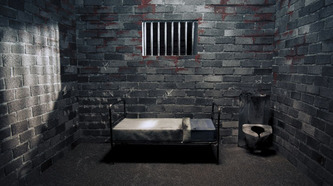On June 7th, the American prison system took another life. Kalief Browder had not been confined behind the walls of a prison for several months, but the system remains largely responsible for his death nonetheless. On that Saturday afternoon, Kalief's mother made the discovery that no parent should have to endure: he had hanged himself outside the family home. It would be easy to write this story off as being just one of a "troubled youth," but it would be a tremendous disservice to his memory were we not to make clear that our entire judicial system set the stage for this tragedy.
Browder was a child of just 16 when he was arrested for robbery and imprisoned at the notoriously violent RNDC at Rikers prison. There he languished for nearly three years, waiting for a trial that never took place. But worse than that, the bulk of his time there was spent in solitary confinement; the practice of confinement for minor issues (or for no reason at all) is a practice that in recent years has been growing in popularity across New York's jails. The moratorium on isolation for those under 21 years of age came too late for Kalief. There he endured abuse at the hands of prison staff, the withholding of food, and the mental ravages that come with complete isolation from the world. Ultimately, he attempted suicide. The response of the facility speaks to the heart of the problem: he was sent to the prison clinic, then returned to solitary without being provided with treatment for serious mental health concerns. His case was later dismissed, but the damage had been done.
Bowder had done much to better himself both prior to and after his release, to put the past behind him, but experiences like his are not easily swept under the rug. He was released from prison a changed man, and he attempted suicide multiple times; his mental health remained fragile up to his death this week.
A full account of Browder's ordeals can be read here. New Yorker writer Jennifer Gonnerman became close with Browder, documenting the abuses mete upon him by prison staff and remaining close with him upon his release. He became a cause celèbre for many, and it seemed to all intents and purposes that his life was on the right track. But what is difficult to convey is the emotional toll that solitary confinement takes on a human being. It's an experience I wish I could say I couldn't empathize with, but I have been twice confined to solitary for my writing. Nothing can prepare you for that kind of isolation and the desperation it engenders in even the most stable mind. For those with existing mental health issues, confinement can literally be deadly.
For three years, a teenager's medical needs were neglected and he was tortured by a system entrusted with his care -- and it's a problem that is endemic to the system. The mentally ill are disproportionately represented amongst the incarcerated; each year, 2 million men and women with mental illnesses are jailed, accounting for nearly two-thirds of women and half of men incarcerated. In its current state, the American prison system is incapable of adequately meeting the mental health needs of its inmates.
The system is that is charged with the treatment and housing of the mentally ill, is one that is barely capable of addressing even the most basic of medical issues facing prisoners. And our penchant for simply throwing more and more people into our prisons is only exacerbating the problem. They are not referred to community-based organizations which may assist them, or treatment facilities that can provide critical medications -- they are shuffled away into our already over-stuffed prisons and jails.
The Stepping Up Initiative is currently engaged in the issue and seeking to develop new approaches to keeping the mentally ill out of the prison system, and helping to break the cycle of those who are already in it. I encourage you to take a moment both to read Kalief's story, and to see how you can help change a broken a system that is killing our young men and women.

